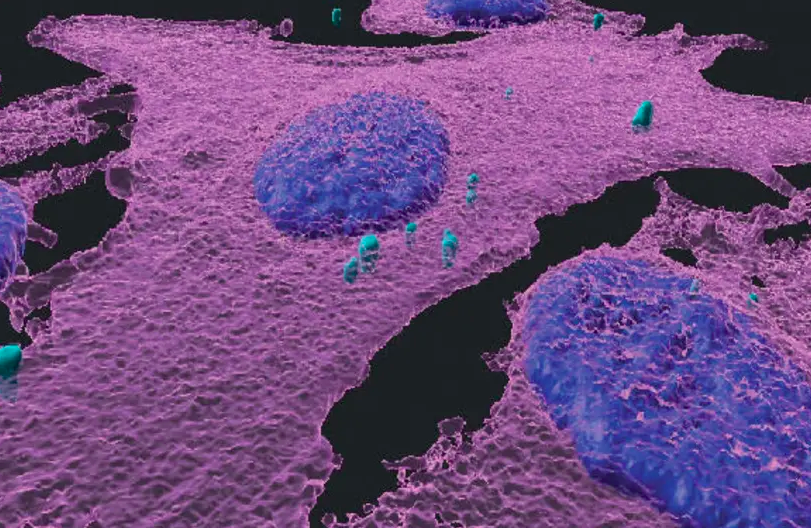
Cancer cells present bacterial peptides on the outside of their walls, marking them as a foreign element to the body’s immune system, Weizmann Institute scientists report in a new article published in Nature.
This is crucial as while immunotherapy has been able to help melanoma cancer patients in roughly 40% of cases, the new findings could pave the road to more effective treatments and many lives saved in the future.
Using methods developed by Dr. Ravid Straussman of Weizmann’s Molecular Cell Biology Department, a team under Prof. Yardena Samuels led by Dr. Shelly Kalaora and Adi Nagler used samples taken from nine patients to examine 17 melanoma tumors to find out which peptides could be “seen” by the body's own defense system.
The team worked closely with partners in Israel, like Technion Prof. Arie Admon, and in the US, including Dr. Jennifer A. Wargo of the University of Texas MD Anderson Cancer Center, Prof Scott N. Peterson of the Sanford Burnham Prebys Medical Discovery Institute and Prof. Eytan Ruppin of the National Cancer Institute.
What the Israeli-American cooperation discovered were 41 different bacteria with about 300 peptides. These, in turn, are used as human leukocyte antigen (HLA) markers – meaning that the cancer cells “show” them to the immune system, which marks them as not belonging to the body in the first place.
Some of the 41 bacteria discovered also appear in the human gut, opening a door for future research to unlock how the gut microbiome interact with immunotherapy. This would help medical teams to better treat patients and predict the result of treatments.
When T cells from patients were placed in a dish with peptides taken from the same patient, the T cells were activated.
Samuels said that “this approach can, in the future, be used in combination with existing immunotherapy drugs” and that the findings could help better target the cancer cells.
